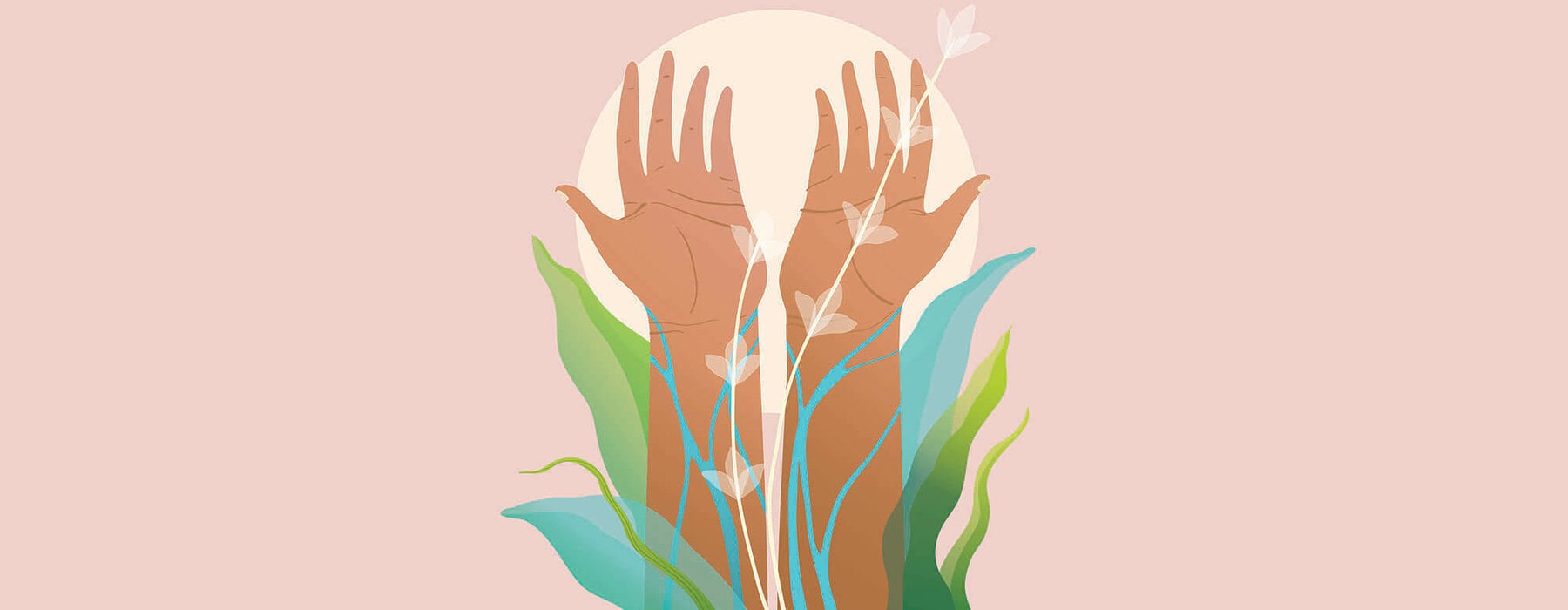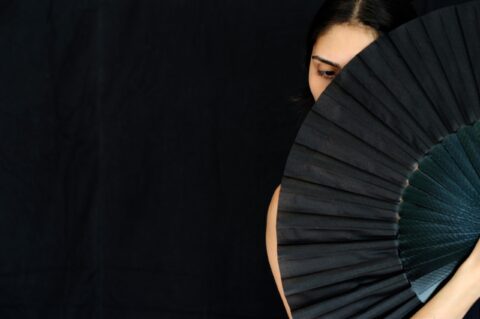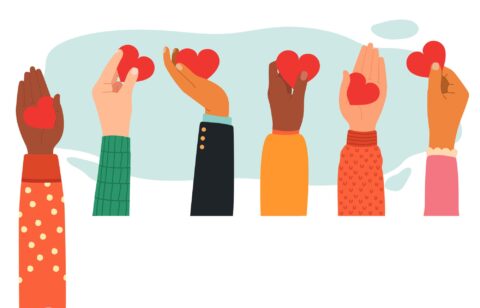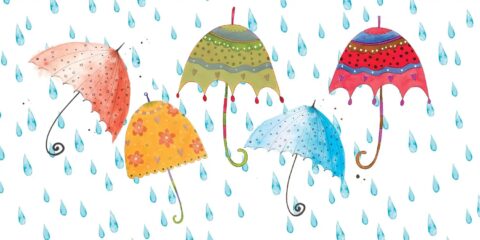Psychologist Jacqui Maguire is inspired by an ancient Japanese idea that can help make your life happier and more meaningful.
Facing uncertainty, adversity or trauma often challenges us to question our purpose in life. We might ask ourselves: Do I enjoy the life I am living? Is my work satisfying? Do I spend my time in proportion with what I value? Am I loved, and do I love? What will be my legacy? “Purpose” can be defined as a consistent aim to achieve something that is personally meaningful and leads to productive engagement with the world. You may have noticed that the upheavals of 2020 and the lack of clarity about our future have sparked you to reflect in this way.
Why purpose matters
Living a purposeful and meaningful life is closely tied to enhanced physical and mental wellbeing. The origins of psychological research in this area lie with Viennese psychologist Viktor Frankl, a Holocaust survivor who endured Nazi concentration camps. In line with a quotation by 19th-century German philosopher Friedrich Nietzsche (on the facing page), he noticed that prisoners who possessed a sense of purpose showed greater resilience to the torture, slave labour and starvation rations to which they were subjected. He lived to produce amazing work on this matter, including an acclaimed book, Man’s Search for Meaning. This research has continued to develop, showing that behaving in ways that are in line with your purpose can:
• Protect against heart disease by lowering cholesterol, obesity, and reducing your inflammatory response.
• Lower your risk of mild cognitive impairment and Alzheimer’s disease.
• Enhance your ability to manage pain.
• Boost your motivation and provide a reason for living.
• Support you to bounce back from setbacks faster.
• Encourage the frequency of experienced positive emotions, especially optimism and hope.
• Enrich your relationships through heightened engagement.
• Increase feelings of satisfaction across your life.
How to discover your purpose
If you sat with a blank piece of paper and finished the sentence “My purpose in life is…” how easily would the words flow? How long would you be staring at the page? Defining your purpose is complex, and I am a firm believer that frameworks can help us simplify and find clarity in our thoughts. An age-old ideology from Okinawa, Japan, called ikigai (pronounced “e-key-guy”) is a framework that might support you in your exploration of purpose. In Japanese “iki” means life and “gai” means purpose, so ikigai is literally “life’s purpose”. It’s significant that Okinawa, where ikigai is cemented at the heart of their way of being, has more centenarians per capita than anywhere else in the world.
Ikigai is seen as the meeting point of four main elements:
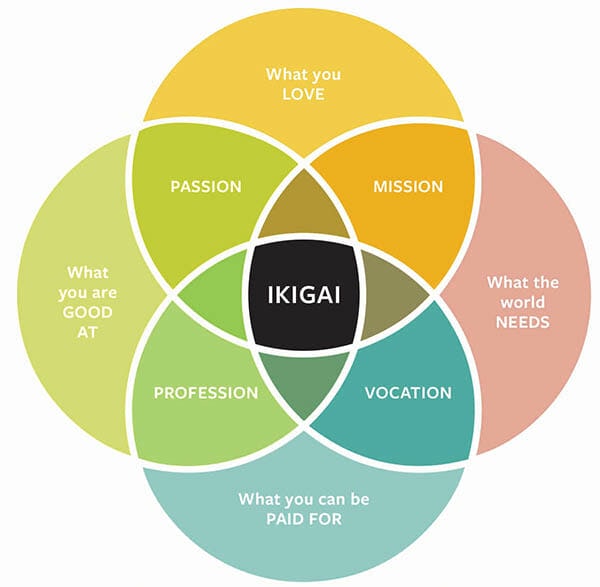
When you have some uninterrupted time, grab a pen and paper (writing helps you process more than typing) and reflect on the following questions:
• What do you love? What brings you energy and what “lights you up” when you talk about it?
• What are you good at? Is there something you do that people provide you with consistent positive feedback about, or that you feel masterful when doing?
• What does the world need? The answer to this question will be different for us all, so using your values as a compass may be the place to start.
• Based on your core values, what in your view is important for the world and its people as we globally move forward?
• Will you be rewarded for it? You’ll need to do your homework on this one. Is your ikigai something you can be paid for, or will it become a hobby on the side?
• Ikigai is a verb. It’s an action. It reminds us that living a purposeful life is not a destination, but how we live. What one small action could you take today that would be an expression of your ikigai and therefore your life’s purpose?
For me, it was writing this article. I am committed to using my voice to translate psychological evidence into easy-to-understand concepts and practical strategies to optimise others’ wellbeing, work and relationships I hope it helped.
ILLUSTRATION: GETTY

